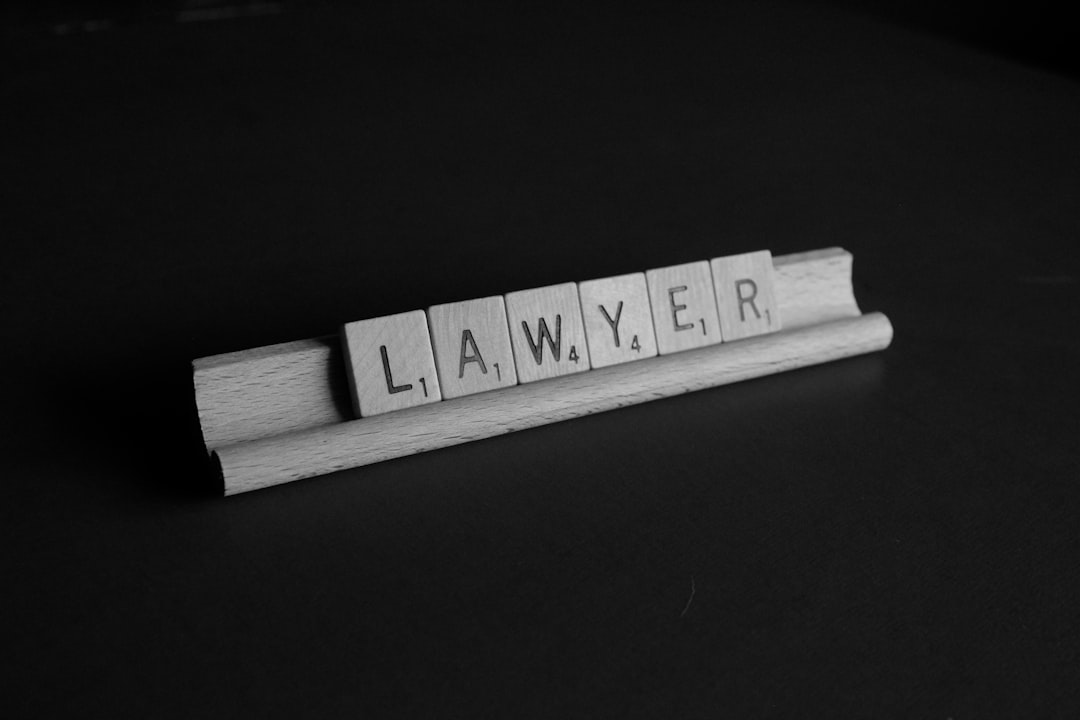South Dakota has strict "Do Not Text" laws prohibiting texting while driving, with penalties including fines and license suspension. Drivers facing charges should consult a specialized Do Not Text Lawyer or Attorney in South Dakota, especially after accidents caused by TWD. These professionals guide victims through personal injury lawsuits and ensure rights under state laws like Do Not Text Laws South Dakota and Spam Call regulations. Researching attorneys with relevant experience and credentials from the South Dakota Bar Association is crucial for competent representation.
“In the pursuit of road safety, understanding and adhering to South Dakota’s texting while driving (TWD) laws is paramount. This comprehensive guide sheds light on the state’s stringent regulations, aiming to curb distractions behind the wheel. From penalties and liability to resources for compliance, we explore critical aspects, including the role of a Do Not Text Lawyer in South Dakota. Discover how legal experts can assist with TWD-related issues, ensuring you stay informed and safe on the roads.”
Understanding South Dakota's Texting While Driving Laws
South Dakota has established strict laws to combat the dangerous practice of texting while driving. According to these regulations, it is illegal for drivers to send or read text messages while operating a vehicle. The primary aim is to minimize distractions and enhance road safety. Law enforcement officers have the authority to pull over and cite drivers who are caught engaging in this behavior, often referred to as a “Do Not Text” law.
For those who violate these rules, consequences may include fines and potential points on their driving record. This stringent approach reflects the state’s commitment to preventing accidents caused by driver inattention. Individuals who find themselves facing charges related to texting while driving should consider consulting with a local Do Not Text lawyer in South Dakota for guidance and representation. Legal experts can help navigate these laws, ensuring fairness and providing support throughout the legal process.
Penalties and Fines for Violations in South Dakota
In South Dakota, texting while driving is taken very seriously, with strict penalties and fines in place to deter such behavior. If caught sending or reading text messages behind the wheel, drivers can face significant consequences. The primary law, known as the Do Not Text Law, prohibits drivers from using a wireless communication device to send, receive, or read any electronic message while operating a vehicle. This includes smartphones and other mobile devices.
Violations of this law result in fines that vary depending on the number of prior offenses. First-time offenders can expect a fine of at least $100, while subsequent violations within a certain timeframe may lead to higher penalties. Additionally, points may be added to the driver’s license, leading to increased insurance rates and potential license suspension. Those who are found guilty and face severe consequences might want to consider consulting with a Do Not Text Lawyer or Do Not Text Attorney in South Dakota who specializes in these types of cases, especially if they believe their rights were violated during the stop.
Who is Considered Liable Under These Laws?
Under South Dakota’s do not text laws, liability for violations often depends on several factors. If a driver is engaged in texting while operating a vehicle and causes an accident resulting in injury or property damage, they can be held legally responsible. This includes both civil and criminal liabilities. The state’s strict do not call/text regulations are designed to promote road safety, and violators may face penalties, fines, or even legal action from victims or their representatives.
In cases where a driver’s texting behavior leads to accidents, individuals who suffer harm may have grounds to file a personal injury lawsuit against the at-fault driver. This is applicable regardless of whether the driver was a teenager, adult, or even a commercial driver. Moreover, law firms specializing in do not text cases, including those in South Dakota, can offer legal assistance to victims, ensuring they understand their rights and options for seeking compensation under the state’s do not text laws.
How to Choose a Do Not Text Lawyer in South Dakota
Choosing a qualified Do Not Text Lawyer in South Dakota is crucial if you’ve been involved in an accident due to texting while driving. Start by researching attorneys with specific expertise in Do Not Text Laws South Dakota. Look for lawyers who specialize in personal injury cases and have experience defending clients against violations of the state’s spam call law firm South Dakota and do not text laws.
Consider attorneys who offer free consultations to discuss your case. This allows you to gauge their knowledge, professionalism, and whether they’re a good fit for your needs. Verify their credentials through the South Dakota Bar Association to ensure they’re licensed and in good standing. Choosing the right Do Not Text Attorney South Dakota can make all the difference in the outcome of your case and ensure you receive the justice you deserve.
Resources and Support for Compliance with SD Laws
In South Dakota, complying with the state’s strict texting while driving (TWD) laws is crucial to avoid severe penalties. If you’ve been involved in an accident due to TWD or need guidance on understanding and adhering to the Do Not Text Laws, consulting a Do Not Text Lawyer or Do Not Text Attorney in South Dakota is advisable. These legal professionals specialize in navigating the state’s regulations and can offer support tailored to your situation, ensuring compliance with the do not text laws South Dakota.
Resources are readily available for those seeking assistance. Law firms dedicated to spam call and TWD-related cases in South Dakota provide valuable insights and representation. They can help clarify the legal implications and offer strategies to mitigate risks associated with violating the do not text laws South Dakota. With their expertise, individuals can protect themselves from potential legal troubles and promote road safety.






